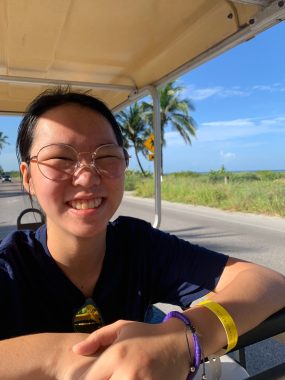Steps I Took to Dig Out From the Depths of Depression
How journaling, photography, and the right treatments helped one family cope
Written by |

Watching a loved one suffer is unbelievably hard. Watching your child suffer and lose function is practically impossible. In my view, suffering and heartache were never meant to be part of our story. Yet here we are. Each of us has extremely hard parts in our stories.
In my life, the hardest thing I’ve ever had to do was watch as our daughter Grace was wasting away. The darkest time was right before she was diagnosed with Lambert-Eaton myasthenic syndrome (LEMS) at age 14. A cloud of depression and anxiety settled over our home, and I didn’t know how to claw us out.
Every morning I would have to drag myself out of bed. Things that were normally deeply soul-satisfying to me were now mundane and without beauty. Sunsets looked dim. Food tasted bland. Music sounded like it had no beat.
What used to give me great comfort now made me anxious. The sound of the ocean seemed more like a deep groan than a place of peace. Our home was devoid of joy.
We, of course, sought counseling for Grace, who was fighting much deeper thoughts of despair and dying. That type of depression needed the help of professional counselors.
Hope after diagnosis
What worked for me was to order my thoughts and environment. First and foremost, Grace finally receiving a diagnosis and plan of action for how to battle LEMS lifted a lot of my depression. Once we had a plan in place, we had hope going forward. For those at the beginning stages of LEMS, please know it can and will get better.
There are many treatment options. We’ve tried most of them. It did take time to find what worked for Grace to give her maximum relief from her symptoms.
For Grace, this meant 70 mg of Firdapse (amifampridine) a day; 180 mg of Mestinon (pyridostigmine) with an additional time-release capsule at night; Rituxan (rituximab) infusions every six months; and Imuran (azathioprine) thrown in for good measure. But before we found what works for Grace, she was on prednisone and monthly intravenous immunoglobulin treatments.
Journaling the good
Second, I began to purposefully look for the good in each day and journal these nuggets of gold.
I forced myself to find some beauty in every day. Whether it was a blue jay singing in our trees or the fragrance of a burning candle, I recorded them in a journal. This allowed me to have a resource of goodness to draw from on the really hard days.
Life lived in pictures
Finally, I began to take pictures again. For a long time, I stayed away from any photography. I resented anyone wanting to take our family photo. At one point, Grace had lost over 15 pounds and looked extremely sick. I didn’t want a forever picture of this period in our lives. Pictures capture life being lived, and I didn’t feel like we were living. At least not well.
We have a gap of about two years when we have very few family pictures. Looking back, I wish we’d captured some of the good during those years. They would’ve acted as a testament to the goodness that was present then.

Members of Lori’s family in a recent photo: from left, Lori, Bethany, Grace, and Darin. (Courtesy of Lori Dunham)
Now, I force myself to capture moments of joy with the snap of a photo. It’s imperative to the health of my mom heart to be able to scroll through my photos and see a picture of Grace smiling.

Capturing Grace’s smile. (Photo by Lori Dunham)
So we contend with the hard parts of our daughter’s story. Each day holds new goodness and joy. This morning, I wake hopeful that Grace is stronger today than she was yesterday.
Note: Lambert-Eaton News is strictly a news and information website about the disease. It does not provide medical advice, diagnosis, or treatment. This content is not intended to be a substitute for professional medical advice, diagnosis, or treatment. Always seek the advice of your physician or other qualified health provider with any questions you may have regarding a medical condition. Never disregard professional medical advice or delay in seeking it because of something you have read on this website. The opinions expressed in this column are not those of Lambert-Eaton News or its parent company, Bionews, and are intended to spark discussion about issues pertaining to Lambert-Eaton myasthenia syndrome.






Leave a comment
Fill in the required fields to post. Your email address will not be published.